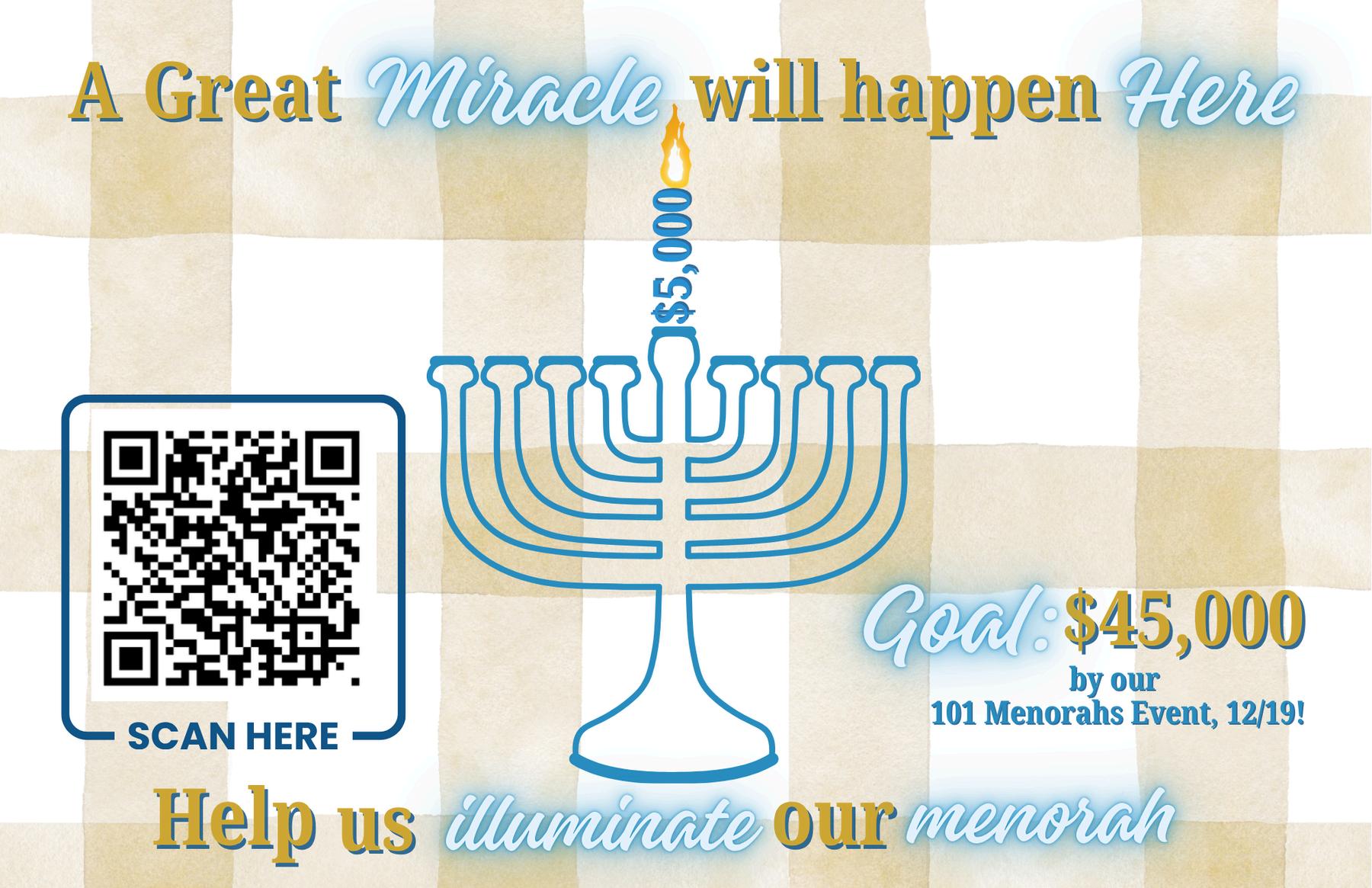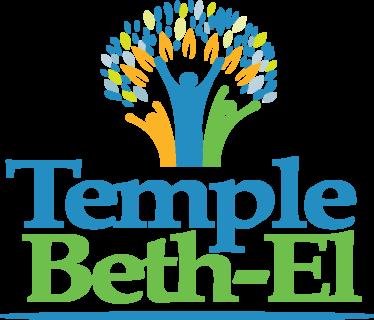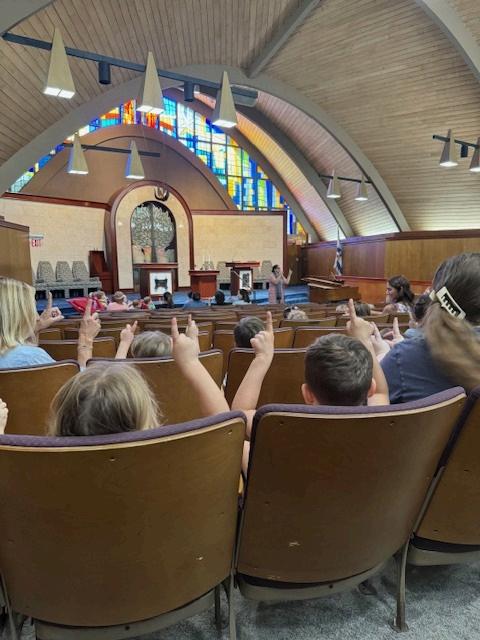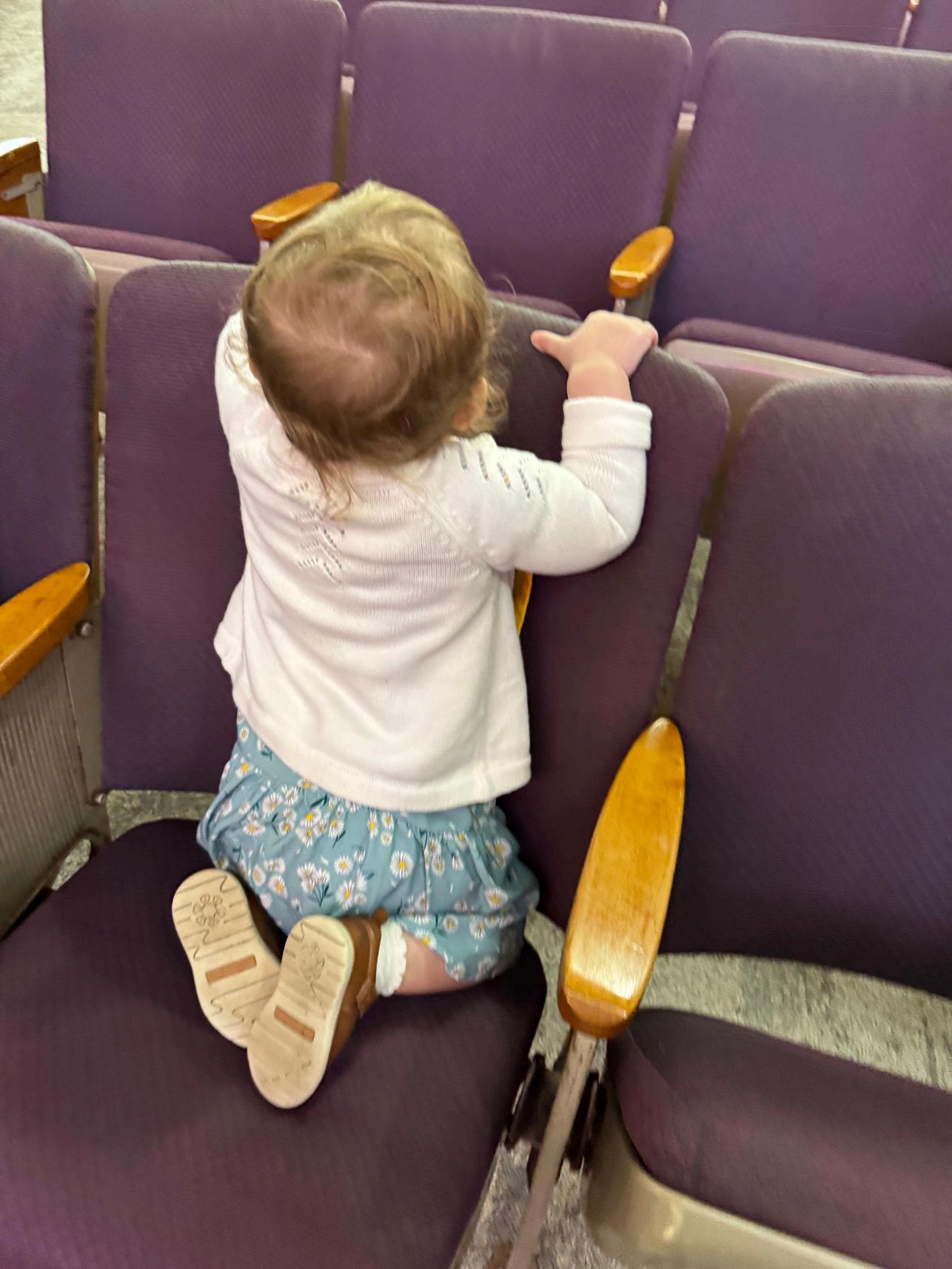




Martin Aksman
Max Becker*
Gilbert Bennett
Moses Cieman*
Irving A. Eichenbaum*
Marion Fortunoff*
Mildred Greene*
Sheila Grossman*
Bertha Jerzy*
Clarence Kern*
Lila Kraut*
Edward Kunitz
Ellen Phyllis Kunitz
Morton Lasher*
Martin Lebowitz
Sophie Lees* We
Gladys Leveen*
Florence Miller
Claire Rose Negin
Leif Nissen
Lorraine M. Ott
Samuel Rosen
Dave Rubin
Samuel B. Samuels*
Max Savitsky
Joseph Schwartz
Rose Schwartz*
Edward Scully
Mildred Shavlan
Henry Weinberg*
George Weinstein* Eda Zimring*
*Denotes plaque in Memorial Alcove
Reach out to us with any questions.
Amy L. Morrison - Rabbi
727-347-6136 - RabbiMorrison@TempleBeth-El com
Tara O’Donnell - Director of Finance & Operations 727-347-6136 - Tara@TempleBeth-El.com
Jennifer Hannon - Director of Early Childhood Center 727-350-5885 - JennHannon@TempleBeth-El.com
Alexis Kelly - Raymund Family Religious School Principal 727-347-6136 - RaymundRS@TempleBeth-El.com Join us for :

Tracy Nash - Bookkeeper
727-347-6136 - Bookkeeper@TempleBeth-El.com
Tovah Feld - Communications & Engagement Coordinator
727-347-6136 - Tovah@TempleBeth-El.com
Allison Fowler - Office Administrative Assistant 727-347-6136 - Allison@TempleBeth-El.com
Mike Shapiro - Temple President 727-347-6136 - President@TempleBeth-El.com


Parashah Chayei Sarah opens with a striking paradox: “The life of Sarah was one hundred and twenty-seven years… ” and immediately afterward, the Torah tells of her death. Why, then, call this portion “The Life of Sarah?” Our tradition teaches that real life isn’t defined by the number of our days, but by what fills them our love, our courage, our faith, and the legacy we leave behind.
Sarah’s story reminds us that a meaningful life is not a perfect one. It is a life of presence of showing up, even through uncertainty, and finding holiness in ordinary moments. Her tent became a place of welcome, her laughter a symbol of resilience, and her choices a reflection of enduring faith Though Sarah’s physical life ends, the Torah honors her as fully alive, because her spirit continues through the lives she touched
This parashah calls each of us to that same awareness: to celebrate our lives while we are still living them Too often, we pause to appreciate someone only after they’re gone Chayei Sarah invites us to live intentionally now to express gratitude, to nurture our relationships, to infuse every day with kindness and meaning In doing so, our lives, too, become a lasting source of light
Let us spend Shabbat honoring our lives, loves, and days well spent

Saturday, November 15
10am - Shabbat Morning Services & B’Mitzvah of Lily Latham, Olivia Latham, & Zoe David
Sunday, November 16
8:45am - Brotherhood Schmooze
9:30am - Sunday School & 1 & 2 Grade Family Day st nd
10:30am - Unorthodox Talks Class
Wednesday, November 19 5pm - Hebrew School
Friday, November 21
5:30pm - Early Oneg 6pm - Erev Shabbat Services
If you are new to Temple Beth-El, welcome!
OPEN COMMUNITY
Located in St. Petersburg on Florida's beautiful west coast, Temple Beth-El is a Reform Jewish congregation that has served this area since 1928 and is focused on strengthening relationships and making connections We are a welcoming Reform community for Jewish and interfaith households to experience an uplifting and joyful sense of belonging as we seek to connect our members with each other and the greater community and world around us. Enjoy and have a Shabbat Shalom!
Parashat Chayei Sarah: Genesis 23:1-25:18
Saturday, November 15, 2025 / 24 Cheshvan 5786
Abraham purchases the cave of Machpelah in order to bury his wife Sarah. (23:1-20)
Abraham sends his servant to find a bride for Isaac. (24:1-9) Rebekah shows her kindness by offering to draw water for the servant's camels at the well. (24:15-20)
The servant meets Rebekah's family and then takes Rebekah to Isaac, who marries her. (24:23-67)
Abraham takes another wife, named Keturah. At the age of one hundred and seventy-five years, Abraham dies, and Isaac and Ishmael bury him in the cave of Machpelah. (25:1-11)

Relax! God put the wiggle in children. Don’t feel you have to suppress it in our sanctuary or chapel
Sit towards the front where it is easier for your little ones to see and hear what is happening on the Bima. They tire of seeing the backs of other’s heads.
Quietly explain our rituals and sing or clap when appropriate. Children learn liturgical behavior by copying you.
If you need to leave services with your child, do so, but please come back.

Remember that the way we welcome children in synagogue directly affects the way they respond to coming to synagogue, to God, to one another Let them know that they are welcome in this house of worship, here, at Temple Beth-El.
